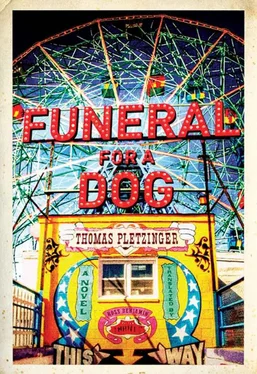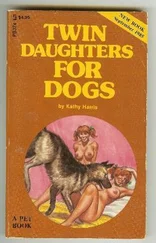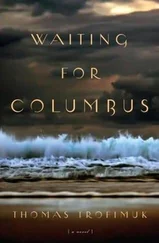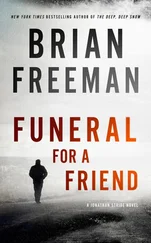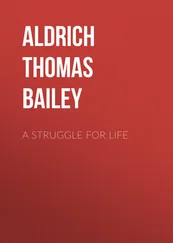The SoHo Grand is on West Broadway and Canal Street, and if there was ever dust here, then the dust has been wiped away, because I can see Lua and myself in the windowpanes as we step out of the taxi. With suit and credit card and leather leash, we don’t stand out here. I take the book out of the plastic bag and leave the bag at the cloakroom. I order a martini and ask for it to be brought to an armchair by the window. It’s twilight, Lua gets water and falls asleep, I call “646-299-1036 Kiki Kaufman!” and ask whether she wants to meet again. Sure, she’ll come by, she says, she’s in the neighborhood. Down on the street a vendor is pushing home his hot dog stand, he looks like the security guard from the library. I put my new white sneakers on the armchair opposite me and open to Chapter “William Wordsworth vs. Robby Naish”. The not beautiful but unusual Carrie is becoming an actress on Broadway, and Hurstwood is pouring drinks once again. So I get a refill too, outside the taxis and the rickshaws pass by. Carrie must look like Tuuli, not beautiful in the strict sense, but nonetheless the most beautiful. Hurstwood is sitting in a theater and watching her. I’m lying in the armchair by the window and reading, I’m observing Carrie and hearing Tuuli singing. In my head Tuuli is sitting on my roof in Brooklyn and singing, Felix and I are listening to her, we’re so moved that we can’t move and so in love that we can’t speak, we drink silently, we lean our heads on the chimney and listen to each other breathing. I can’t think and can’t speak and can’t even read in peace, all stories right now are Tuuli’s and Felix’s and mine. Of course these stories have to be told, I think, but who in them sings what and when, who can look how beautiful, who stands on whose stage and sings and stirs emotions, who speaks when and what can be said, I’d like to determine all that myself, I think, and I close the book and wait for Kiki Kaufman, the woman with the camera.
As I accept a glass of wine, Kiki Kaufman sits down in the armchair next to me and crosses her legs. Again she’s wearing a plain black dress and black shoes, and is carrying a black bag, she has an empty glass in her hand and puts it down on the book. Could she have a sip of my wine? she asks, and takes one. She snaps a photo over her shoulder without looking and puts her camera on the table. Of course, I say, and Kiki Kaufman holds the wine up to the light. You look tired, Svensson, she says, isn’t that right, aren’t you tired? I know, I say. From a long period of time, she says, people remember the first day best. She pours my red wine in her white wine glass. Who are you actually? she asks, but I remember
how Lua came in first through the crack of the door, tilted his heavy head and climbed on the sofa like an old man; I remember how the door opened all the way and Felix said, fucking shit, Svensson! I remember how Felix took two bottles of Rolling Rock out of the bag and put the rest in the fridge. Beer makes you schmart, he said, in the corner of the apartment the television was on, “oh my God, oh my God” again and again, then the camera shook and the image blurred, again and again, like a mantra. Felix sat down next to me and watched, Lua lay down in front of the fridge and begged. Felix gave me the beer, we refrained from clinking bottles,
but at this point Kiki raises her glass and interrupts me. So it’s that story, she says, for weeks I’ve been taking pictures of this city, pictures of this tragedy in many chapters. My 9/11 story isn’t about this city, I say, not about that day and not about terrorism and colonialism and symbols and consequences. My story, I say to Kiki Kaufman, is about Tuuli and Felix and me:
Tuuli and Felix were staying in a hotel next to the World Trade Center, they were visiting New York for a few weeks and planned to return to Germany in mid-September. Felix’s father was paying, Tuuli was seven months pregnant. We weren’t alone, we were three, but on the tenth of September, of all days, Felix and I had talked the night away in a bar in Brooklyn, at first full of panic and later full of pride. Felix had slept on my sofa, Tuuli had stayed alone in her hotel. In the morning I’d gone to work as always. I remind myself and Kiki Kaufman that all I’d had to drink after the World Trade Center collapsed that morning was beer, and that it was already early evening when I arrived at my apartment in Williamsburg. The sun was shining somewhat more orange and the Brooklyn-Queens Expressway behind the house roaring more softly than usual, but with more sirens. Felix and I sat on the sofa and stared at the television. I must have called the hotel a hundred times, said Felix. His voice was a bit too high. At first the lines were jammed, and then no one picked up, not even the receptionist. Felix drank without looking up from the television, stiff as a pole he sat on his side of the sofa, he moved only to lift his beer bottle. I knew that he was thinking about Tuuli, I’d been thinking about her nonstop for hours, the question of Tuuli had already been in the room with me long before Lua and Felix arrived and it was waiting for someone to actually ask it. But Felix didn’t.
Our wine glasses are refilled. Kiki reaches for her camera and takes a picture of me and the dog and herself in the mirror behind us. I drink to that, for days I’ve been drinking milk and vodka and champagne, and I tell Kiki that Felix too went to the fridge again and twisted the caps off two more beer bottles. Felix had always claimed to be a photographer himself, sometimes he’d managed to sell one of his earlier pictures, but in early September he’d had no luck and instead always had a beer in his hand. We had enough to do with Tuuli and the child and the uncertainty. What uncertainty? asks Kiki with wide eyes. I lift my glass and start again from the top. I explain that
the fall of the towers was visible from the window that morning in the office of the literary agency where I worked, down on the street dust-covered pedestrians on the way uptown and fire-truck sirens on the way downtown. I’d been the first in the office on the thirteenth floor overlooking Third Avenue. In the hallway Jackson and Ismael from the mailroom were praying, there was no television, the radio played solemn instrumental music. We read Italian and German Web sites, we unscrewed the air conditioners from the window frames. We suspected biological and chemical agents in the airplanes and tried to seal the windows with double-sided tape in order to survive. I tried to reach Tuuli in the hotel. Nothing. When I called Felix in my apartment, the line was also constantly busy. Then the phone lines died. Raffaella sat in front of the fridge and cried hysterically, Mark worked out with a pocket calculator how long our oxygen would last. We believed there had been a complete closure of all bridges and tunnels out of Manhattan. I wrote Tuuli and Felix a farewell e-mail, but I couldn’t send it because all the lines were overloaded. After half an hour a German publisher was standing in the doorway and offering us dried apricots from his hotel downtown. He was unharmed, we would survive. On the street people streamed northward, away from the smoke and dust. I walked directly toward the towers to find Tuuli. Eventually I was stopped by a policeman: Evacuation! I headed west and tried again and again, it was Tuuli, please, they had to understand, but they shouted at me: Go uptown! End of discussion! Eventually I turned around and walked toward Brooklyn. Between LaGuardia and JFK the sky was blue and empty, all airplanes were grounded, people cringed when pigeons fluttered over their heads, on the way to the bridge ramp on Fifty-ninth Street, among the hushed pedestrians on Second Avenue, later on the Queensboro Bridge over the dirty East River, as the smoke turned from white to black. In front of me two men were walking without shoes, their shoulders covered in snow-white dust, the younger one said, this is what Exodus must have been like, and the older one said, bullshit, this is like Genesis 3, verse 24, so he drove out the man and settled him east of the Garden of Eden. A thin, black woman asked for a cigarette, she heard the bridge was going to be blown up, she said, she quit smoking years ago, but “if I go down, I’m going down smoking,” but I didn’t have any cigarettes,
Читать дальше
